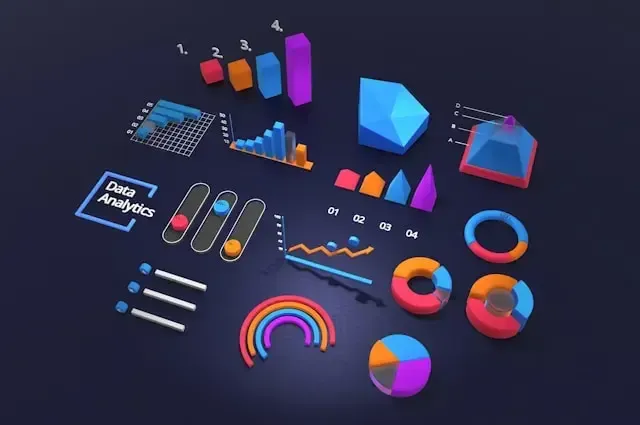In this article, we will explore ten sustainable farming practices that every farmer should know. Sustainable farming practices are becoming increasingly important as the world's population continues to grow and food security becomes a pressing issue. Farmers who utilize sustainable practices can improve their yields, protect the environment, and ensure that their farms remain profitable for years to come.
Sustainable farming practices are becoming increasingly important as the world's population continues to grow and food security becomes a pressing issue. Farmers who utilize sustainable practices can improve their yields, protect the environment, and ensure that their farms remain profitable for years to come.In this article, we will explore ten sustainable farming practices that every farmer should know.
One of the most important sustainable farming practices is crop rotation. By rotating crops, farmers can improve soil health, reduce erosion, and decrease the likelihood of pests and diseases. Another key practice is conservation tillage, which involves leaving crop residue on the soil surface to improve soil structure and reduce erosion. In addition, farmers can use cover crops to improve soil health and reduce the need for fertilizers and pesticides.
Sustainable farming practices also include the use of integrated pest management, which involves using a combination of strategies to control pests and reduce the need for pesticides. Farmers can also use agroforestry to improve soil health and provide additional income streams, and precision agriculture to reduce waste and improve yields. By implementing these and other sustainable farming practices, farmers can create a more resilient and sustainable food system for all.
Core Sustainable Practices
Sustainable farming practices are crucial for ensuring the long-term health and productivity of agricultural systems. There are several core sustainable practices that every farmer should know to optimize their land use and minimize their environmental impact.
Crop Rotation
Crop rotation is a sustainable farming practice that involves planting different crops in the same field in a planned sequence. This practice helps to improve soil health, reduce soil erosion, and control pests and diseases. By rotating crops, farmers can also reduce their reliance on synthetic fertilizers and pesticides, which can be harmful to the environment and human health.
Agroforestry Systems
Agroforestry systems are a sustainable farming practice that involves integrating trees and shrubs into agricultural landscapes. This practice can provide a range of benefits, including improved soil health, increased biodiversity, and reduced greenhouse gas emissions. Agroforestry systems can also provide farmers with additional sources of income, such as fruit and nut crops.
Conservation Tillage
Conservation tillage is a sustainable farming practice that involves reducing or eliminating tillage operations to preserve soil structure and reduce soil erosion. This practice can help to improve soil health, increase water infiltration, and reduce greenhouse gas emissions. Conservation tillage can also reduce the fuel and labor costs associated with conventional tillage systems.
Overall, these core sustainable practices can help farmers improve the health and productivity of their land while minimizing their environmental impact. By adopting these practices, farmers can help to ensure the long-term sustainability of their agricultural systems.
Advanced Techniques for Sustainability
Integrated Pest Management
Integrated Pest Management (IPM) is a sustainable approach to managing pests that involves using a combination of techniques to reduce pest populations and minimize damage to crops. This approach includes cultural practices, such as crop rotation and intercropping, as well as biological and mechanical control methods. By reducing the use of synthetic pesticides, IPM helps to protect the environment and improve soil health.
Organic Farming
Organic farming is a method of agriculture that relies on natural inputs and processes to maintain soil fertility and control pests and diseases. This approach involves avoiding the use of synthetic fertilizers and pesticides, and instead using organic materials like compost and cover crops to improve soil health. Organic farming is a sustainable approach to agriculture that helps to protect the environment and promote biodiversity.
Precision Agriculture
Precision agriculture is a sustainable farming technique that uses technology to optimize crop yields while minimizing inputs like water, fertilizer, and pesticides. This approach involves using sensors and other tools to collect data on soil moisture, nutrient levels, and other factors that affect crop growth. By using this data to make informed decisions about planting, irrigation, and other practices, farmers can reduce waste and increase efficiency.
Water Management
Water management is a critical component of sustainable agriculture, especially in areas where water is scarce. This approach involves using techniques like drip irrigation and rainwater harvesting to conserve water and reduce waste. By using water more efficiently, farmers can improve crop yields and reduce their environmental impact.
Cover Cropping
Cover cropping is a sustainable farming technique that involves planting cover crops like clover, rye, and vetch in between cash crops. These cover crops help to improve soil health by adding organic matter and nutrients, reducing erosion, and suppressing weeds. Cover cropping is an effective way to improve soil fertility and reduce the need for synthetic fertilizers.
Soil Fertility Management
Soil fertility management is a sustainable farming technique that involves using natural inputs like compost, manure, and cover crops to improve soil health and fertility. By maintaining healthy soil, farmers can reduce the need for synthetic fertilizers and pesticides, and improve crop yields.
Polyculture and Biodiversity
Polyculture and biodiversity are sustainable farming techniques that involve planting multiple crops and promoting biodiversity on the farm. By planting a variety of crops and promoting biodiversity, farmers can reduce the risk of crop failure and improve soil health. These techniques also help to promote wildlife habitat and protect the environment.
Why Framers Should Embrace Sustainable Farming Practices.
In this section, we will look at some of the reasons why farmers should embrace sustainable farming practices. The benefits of sustainable farming cut across the environmental, cultural, and agricultural sectors.
Sustainable farming prioritizes the efficient use of natural resources like water, soil, and energy through techniques like drip irrigation, crop rotation, and organic methods. This minimizes environmental impact and ensures long-term land health.
Agriculture contributes significantly to greenhouse gas emissions, mainly through synthetic fertilizers and intensive practices. Sustainable methods like agroforestry and carbon sequestration help farmers reduce their carbon footprint and combat climate change.
Monoculture farming leads to biodiversity loss and susceptibility to pests. Sustainable practices like intercropping and preserving habitats promote healthier ecosystems and more resilient farms
.
.
Soil degradation, causing reduced fertility and erosion, is a global concern. Sustainable techniques like cover cropping and minimal tillage build soil organic matter, resulting in healthier, more productive soils.
Agricultural runoff threatens water quality and aquatic ecosystems with harmful chemicals. Sustainable methods such as precision irrigation and integrated pest management minimize runoff and protect waterways from contamination
.
.
Finally, transitioning to sustainable practices may have initial costs, but the long-term benefits are significant. By reducing input costs, increasing crop resilience, and accessing premium markets for sustainable goods, farmers enhance economic viability and secure livelihoods for future generations.
Tips For Beginning Your Sustainable Farming Journey.
- Educate yourself about sustainable practices.
- Assess your land's suitability.
- Set clear goals for your farm.
- Start small and gradually expand.
- Choose sustainable techniques like crop rotation and organic farming.
- Invest in necessary infrastructure.
- Connect with other sustainable farmers and organizations.
- Monitor your practices and adapt as needed.
- Consider certification options.
- Stay committed to sustainability and continue learning and evolving.
Conclusion
In conclusion, embracing sustainable farming practices is not only essential for addressing environmental challenges but also for ensuring the long-term viability and resilience of agricultural systems.
By prioritizing practices such as crop rotation, organic farming, and water conservation, farmers can minimize their environmental footprint, enhance soil health, and promote biodiversity.
Additionally, sustainable farming techniques offer economic benefits by reducing input costs, increasing crop resilience, and accessing premium markets for sustainably produced goods.
As stewards of the land, farmers play a crucial role in shaping the future of food production. By embracing sustainable farming practices, they can contribute to a healthier planet, more resilient communities, and a more sustainable food system for generations to come.
It is time for farmers to embrace the principles of sustainability and lead the way towards a more sustainable and prosperous future for agriculture.


























